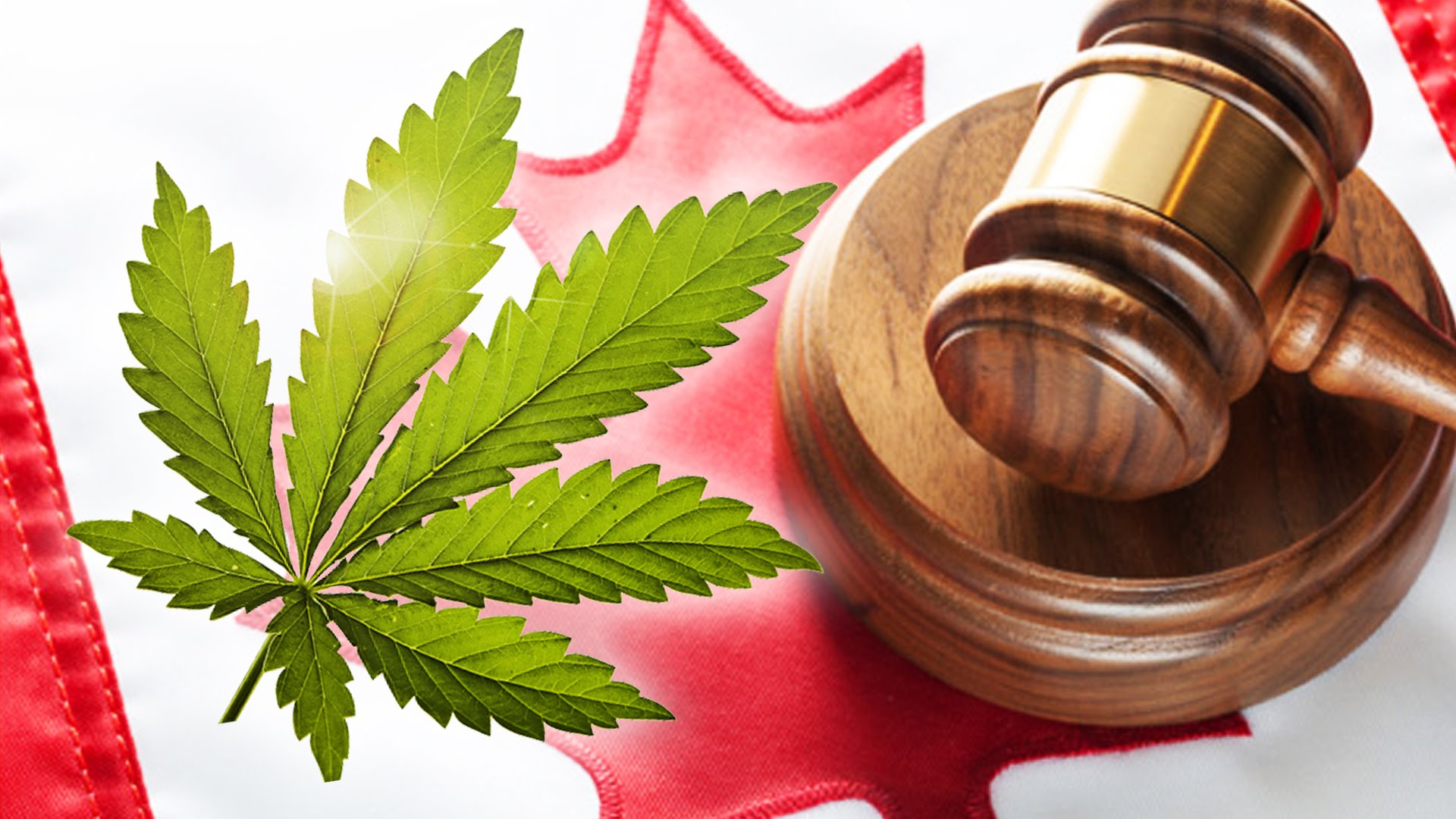
Are you interested in diving into the controversial and ever-evolving topic of marijuana legalization? Look no further, because here we will discuss in-depth about Canada’s journey towards legalizing recreational use of marijuana. As a country known for its polite citizens, maple syrup and hockey, Canada has taken a bold step in becoming the first major industrialized nation to legalize cannabis nationwide. This decision has sparked debates across social, political and economic aspects, making it a hotly debated issue among Canadians and beyond.
In this blog post, we will explore the history behind marijuana prohibition in Canada while delving into the current legislation surrounding its legalization. So buckle up as we take an informative ride through the highs and lows of marijuana legalization in Canada.
Introduction to the topic of marijuana legalization in Canada

Marijuana legalization in Canada has been a hot topic of discussion in recent years. With the passing of the Cannabis Act in 2018, Canada became only the second country in the world, after Uruguay, to legalize and regulate cannabis for recreational use. Supporters of legalization argue that it will help to reduce crime, undermine drug dealers, and generate significant tax revenue for the government.
Meanwhile, opponents argue that legalization could lead to increased drug use, particularly among young people, and that it may have negative effects on public health and safety. Regardless of where one stands on the issue, the reality is that cannabis is now legal in Canada, and there are a host of new regulations in place to govern its sale and use. Understanding these regulations and their implications is crucial for anyone who wishes to stay informed about the ongoing debate over cannabis legalization.
Brief history of marijuana laws in Canada
Marijuana laws in Canada have undergone significant changes over the years. In 1923, the use, sale, and possession of cannabis were criminalized, making Canada one of the first countries to prohibit the drug. In the following decades, the laws surrounding marijuana remained strict, and harsh penalties were imposed on those caught in possession of the drug. However, in recent years, there has been a significant shift in attitude towards cannabis in Canada, leading to the legalization of recreational use in 2018.
This historic change has made Canada the second country in the world to legalize marijuana. While marijuana laws in Canada continue to evolve, it is clear that attitudes towards the drug are changing, creating new opportunities for research and development in the medical and economic sectors.
Current status of marijuana legalization in each Canadian province and territory
The legalization of marijuana has been a hot topic across Canada since the federal government legalized the drug in 2018. Each province and territory has taken a unique approach to legalization, with some being more lenient than others. For example, in Ontario and Quebec, individuals can purchase cannabis through government-run online stores or private retailers.
Meanwhile, in the Northwest Territories, the sale of cannabis is operated by the territorial government through their liquor commission. In some regions, such as Nunavut and Yukon, there are strict limits on the possession and consumption of marijuana. As the country continues to navigate this new landscape, it will be interesting to see how each province and territory adapts to legalization and whether attitudes towards cannabis will change over time.
Benefits of legalizing marijuana in terms of economic growth and new job opportunities
Legalizing marijuana can have a huge impact on the economy by providing new job opportunities within the industry. States that have legalized marijuana have seen an increase in the number of jobs available, from cultivation and processing to sales and distribution. The industry also creates opportunities for ancillary businesses such as security, technology, and marketing.
In addition to job creation, legalizing marijuana can bring in significant tax revenue for states. According to some estimates, legalizing marijuana nationwide could generate billions of dollars in tax revenue each year. As more and more states move towards legalization, the potential for economic growth and new job opportunities only continue to grow.
Concerns and challenges surrounding the legalization process, such as regulation and public safety

The push towards legalizing certain substances has brought about both excitement and concerns regarding its impact on the public. One of the chief concerns is the need for better regulation to ensure consumer safety. This involves setting clear guidelines for quality control, dosage, and labeling standards – procedures essential in protecting the consumer from dangerous products. Thus, this important step requires collaboration between the government regulators and industry players, to create a compliance framework.
Another challenge that comes with legalization is public safety issues. The increased accessibility of these substances may lead to unintended consequences such as increased abuse or impaired driving. Policymakers should work to mitigate these concerns through training, preparedness, and awareness campaigns. Overall, while legalization presents a viable solution to certain problems in our society, it is critical to prioritize regulation and public safety to prevent unintended consequences.
Comparison between Canada’s approach to marijuana legalization and other countries
Canada’s approach to marijuana legalization has stood out among other countries for its forward-thinking and progressive nature. Unlike some countries which have imposed harsh penalties and even criminalized possession and use of marijuana, Canada has taken a more pragmatic approach. The country has made recreational marijuana use legal for adults across the nation, while also regulating its production, distribution, and sale.
This has not only resulted in a shift towards a more informed and evidence-based approach to drug policy but has also led to improved public health outcomes. Other countries across the globe can learn a lot from Canada’s measured approach to marijuana legalization. It is worth noting, however, that the laws regulating the use and sale of marijuana differ significantly between countries, so it is important to research local laws and regulations before engaging in any activity related to the drug.
Impact on medical marijuana users and accessibility to medical cannabis products
As medical marijuana gains acceptance and legalization across the United States, its impact on users is becoming clearer. Many patients with chronic pain, anxiety, and other medical conditions have found relief through using medical marijuana products. However, accessibility to these products can still be an issue for some patients.
While medical cannabis is legal in many states, there are still some legal and regulatory challenges that make it difficult for patients to access the products they need. As the conversation around medical marijuana continues, advocates are working to improve accessibility so that all patients who need cannabis for medical reasons can access it easily and legally.
Discussion on how the legalization can potentially change societal attitudes towards marijuana use

The legalization of marijuana has the potential to bring about significant changes in societal attitudes towards the plant’s use. With the drug becoming more readily available, people may become more open to experimenting with it, or even incorporating it into their daily routines. Furthermore, as marijuana use becomes more normalized, individuals who may have been hesitant to try it in the past may be more inclined to partake without fear of legal repercussions.
This shift in attitudes towards marijuana use may also lead to a greater understanding of its potential benefits and risks, both medically and recreationally. Ultimately, the legalization of marijuana will likely have far-reaching effects on society’s perceptions of the drug and its place in our everyday lives.
Future predictions for the cannabis industry in Canada
In 2018, Canada made history by becoming the second country in the world, after Uruguay, to legalize recreational cannabis. The industry has been booming ever since, generating billions of dollars in revenue and creating thousands of jobs. However, the future of the cannabis industry in Canada is still uncertain and there are several factors that could shape its trajectory in the years to come.
As the industry matures, we can expect to see more competition and consolidation among companies, as well as new product innovations and distribution models. Additionally, changes in government regulations and public opinion towards cannabis will continue to play a significant role in shaping the industry’s future. While there are many challenges ahead, the potential growth and opportunities in the cannabis industry make it an exciting time for investors, entrepreneurs, and consumers alike.
Conclusion emphasizing the importance of responsible use and staying informed about the changing laws

As our laws surrounding certain issues continue to evolve and change, it’s important to stay informed and educated about these updates. Not only does this show responsibility and accountability on an individual level, but it also helps contribute to a safer and more knowledgeable society as a whole. Responsible use of information and resources, as well as adherence to these changing laws, is crucial in order to protect ourselves and those around us. By staying informed and up-to-date on these laws, we can all play a role in promoting a more responsible and law-abiding community.
In conclusion, the journey towards marijuana legalization in Canada has been a complex and ever-changing one. From strict regulations to a more lenient approach, this country has seen significant progress in terms of cannabis laws. As we have explored together, each province and territory has its own set of laws and considerations when it comes to legalizing marijuana. While the economic benefits are evident, there are also valid concerns about ensuring proper regulation and safety measures are in place. In comparison to other countries, Canada’s approach may seem more open-minded and progressive, but it is crucial for us as citizens to stay informed and responsible as this industry continues to evolve.
One group that may greatly benefit from legalization is medical marijuana users who will now have better access to their medication. Additionally, the increasing societal acceptance of marijuana use could lead to a positive shift in attitudes towards cannabis consumption overall. However, it is important for individuals to remember the potential risks associated with excessive use and prioritize responsible consumption.
Looking into the future, the continuously evolving landscape of marijuana legislation will undoubtedly bring about new challenges and changes in our society as a whole. As such, it is essential for us all to remain aware of these developments and stay informed on how we can best navigate this new chapter.
So as we embark on this new era of legalized marijuana in Canada, let us remember to do so with caution and a sense of responsibility. Let us continue learning about this fascinating plant and all its potentials while also being mindful of our actions. Ultimately, only through education and mindfulness can we truly reap all the benefits that come with this landmark decision. So let us move forward together into this exciting future, one joint at a time!














